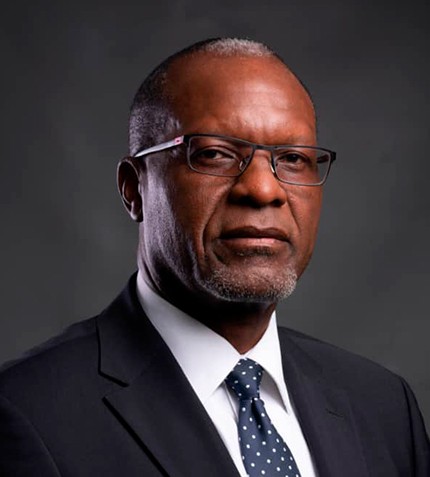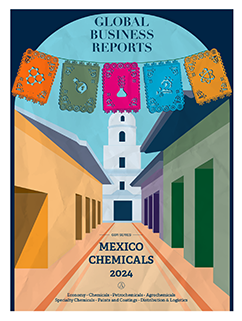
"Namibia offers a compelling value proposition for investors looking to capitalize on the country's vast potential in the mining and energy sectors."
Tom Alweendo
MINISTER OF MINES AND ENERGY, GOVERNMENT OF NAMIBIA
Can you introduce the Ministry of Mines and Energy and outline its mandate and goals for Namibia's mining and energy sectors?
I have overseen the Ministry of Mines and Energy since April 2018. The Ministry serves as the custodian of Namibia's minerals and energy resources. Mining especially is one of the most significant sectors of the Namibian economy, contributing over 50% of our revenue and up to 15% of our GDP. Energy, particularly with the recent oil discoveries, is becoming increasingly important as well, potentially eventually overtaking mining in terms of its significance to our economy. We seek to leverage these sectors as catalysts for broader economic development. Our mandate includes overseeing the exploration, extraction, and regulation of minerals and energy resources to ensure their sustainable management and utilization for the benefit of Namibia's economy and people.
What are Namibia's plans for exploiting recent oil discoveries?
The major oil discovery two years ago was met with great enthusiasm and debate. While some voices advocate for moving away from fossil fuels due to climate change concerns, we perceive this discovery as a significant economic opportunity for Namibia. It is crucial to understand that our nation, like many others in Africa, faces pressing issues such as high unemployment rates and inadequate livelihoods. Therefore, the discovery of this oil resource is incredibly exciting for us, as it has the potential to help solve some of these socio-economic challenges. We are deeply committed to learning from the experiences of other countries where oil discoveries failed to translate into sustainable economic development.
Mining is a significant contributor to Namibia’s economy. How is this translating into benefits for Namibians, and how do you think this could be replicated in the energy sector as well?
Historically, African nations, including Namibia, have often found themselves on the losing end of resource extraction deals. Our resources have been exploited without generating equivalent benefits for our people. Recognizing this, Namibia is redefining its approach to resource management. In the case of critical minerals like lithium and rare earths, we are taking proactive steps to ensure that value addition occurs within our borders. This means evaluating and processing these minerals locally before export, thereby maximizing the economic benefits for Namibia.
For oil and gas, we are applying similar principles. We are advocating for regional refinery projects to retain more value within the continent. This strategic shift is not about resource nationalization; it is about ensuring that our resources contribute meaningfully to our economic development.
Can you elaborate on Namibia's recent MoU with the EU regarding green hydrogen, and how do you envision the future of green hydrogen and renewables in Namibia?
Namibia is well-placed for green hydrogen and renewable energy. We have ample solar and wind resources. We are poised to develop renewable energy assets, with green hydrogen offering great promise. Namibia will eventually become a net-zero economy, with the potential for renewable energy production eclipsing our fossil-fuel-based production potential. We are actively promoting green hydrogen, signing agreements with the EU and Japan. Namibia aims to lead in this energy transition, fostering investment in renewables for a competitive edge in this evolving landscape. Overall, we are optimistic about our role in transitioning to renewable energy. We will be careful not to only produce green hydrogen solely for export. We want more value to be produced within the country.
What are the key advantages that Namibia offers for investment in the extractive industries?
Namibia offers a great investment environment with robust infrastructure, a safe environment, political stability, and a favorable regulatory framework. Our country is rich in mineral and energy resources, making it an attractive destination for investors seeking long-term opportunities. Additionally, Namibia's commitment to sustainable development and good governance ensures a conducive business climate and mitigates investment risks. We prioritize transparency, accountability, and stakeholder engagement to build trust and confidence among investors. Moreover, Namibia's strategic location in southern Africa provides access to regional markets and opportunities for collaboration and partnerships. Overall, Namibia offers a compelling value proposition for investors looking to capitalize on the country's vast potential in the mining and energy sectors. Finally, Namibia is simply a nice place to live and work in, and this is reflected by our booming hospitality and tourism sector.











